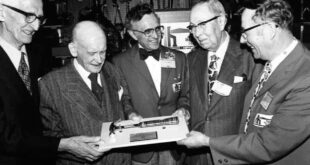Smart home technology, such as remotely controlled security systems and appliances, has downsides, such as the many apps needed to control products and incompatibility between different devices that prevent them from working together.
“Home automation systems like Nest and Hue are all well and good, but they’re not much use if they can’t bear talking to each other,” Michael Andor Broeder writes for The Boston Globe. Nest is a type of smart thermostat, which can be programmed remotely, and Hue is a wireless lighting system.
“And with each new system we smartify, we get yet another app to tap, more menus to navigate, more work instead of less,” Broeder says.
However, the Massachusetts Institute of Technology is working to simplify the ways people use smart home technology, and give users more control over the way products work and interact by allowing people to reprogram them as they wish.
“Right now, companies like Amazon and Google, which are designing objects for the smart home, use artificial intelligence and big data to try to anticipate users’ needs: in the case of the smart thermostat Nest, what temperature someone likes, for example,” John Brownlee says in an article from Fast Company.
The problem is that these technologies give consumers less control, not more, over the devices, he says.
The Massachusetts Institute of Technology Media Lab has developed Reality Editor, a mobile app to give consumers the power to customize how smart home devices work and interact, letting “you link the smart objects around you together, just by drawing connections with your finger between them,” according to the Fast Company article.
For now, the trouble is that most Reality Editor users won’t be able to do much more than tinker with the app, since they would have to modify products to make them work with the Reality Editor technology, Brodeur says.
“Seeing this technology at work in videos posted by MIT is like looking into the future promised by dozens of movies, just with no sign of Tom Cruise, which is even better,” he says.
 Hardware Retailing The Industry's Source for Insights and Information
Hardware Retailing The Industry's Source for Insights and Information







